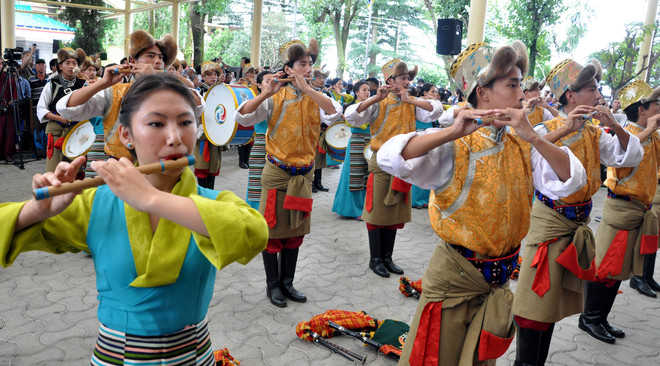Tribune News Service
Dharamsala, December 13
The Central Tibetan Administration (CTA) has blamed Chinese government for interfering in faith of Tibetan people.
“Interfering with Tibetan people’s faith for political gains has been an age-old practice of China’s political game. During the cultural revolution, they destroyed Tibetan monasteries and cultural relics in the name of modernization and disrobed and disbanded monks and nuns from monasteries in an effort to brainwash Tibetans with socialist propaganda,” Sonam Norbu Dagpo, Secretary for International Relations and spokesperson of the Central Tibetan Administration, said in a statement released today.
“They are now manipulating people’s faith in Tibetan Buddhism, particularly the millennia–old tradition of reincarnation to control Tibet. It’s obvious that their ultimate goal is to grab Tibet’s institution of the Dalai Lama and use it as a political tool to legitimize their occupation,” he added.
“However, China should understand that the reincarnation system is a millennia-old tradition that is deeply embedded in the Tibetan people’s culture, and China’s decade old policy cannot replace this tradition,” he said.
He further said since 1951 China had controlled Tibet with a high-handed approach to its culture and religion. This overbearing attempt has won them few supporters and antagonised a majority of the population, including inciting several popular uprisings.
The CTA spokesperson said that it had been a decade since China announced its infamous “Order no 5” in 2007, decreeing that all the reincarnations or tulkus of Tibetan Buddhism must get government approval, explaining that anyone otherwise would be “illegal or invalid”.
The Chinese government has justified this step as an effort to institutionalize the management of the Tibetan reincarnation system and curb fraudulent activities.The self-described ‘atheist’ state even took the unusual step of publishing a list of “authentic living Buddhas” on the official website of its State Administration for Religious Affairs, he said.
Sonam Norbu Dagpo said that the move was widely criticised by Tibetans as interfering in their religious belief. It China’s latest attempt to legitimise the occupation of their country by co-opting Tibetan Buddhism, the spiritual glue that binds Tibetan people into a single political entity.
Unlock Exclusive Insights with The Tribune Premium
Take your experience further with Premium access.
Thought-provoking Opinions, Expert Analysis, In-depth Insights and other Member Only Benefits
Already a Member? Sign In Now










